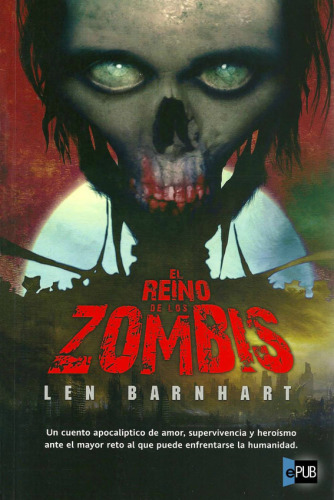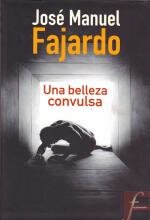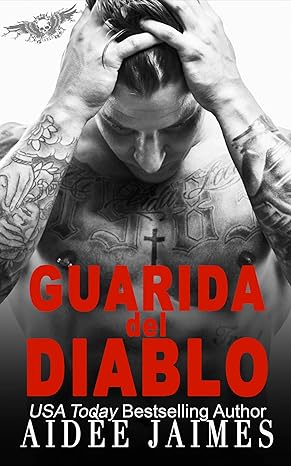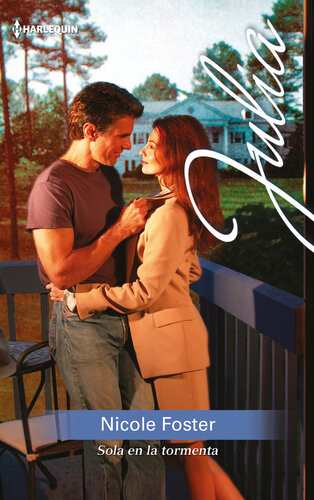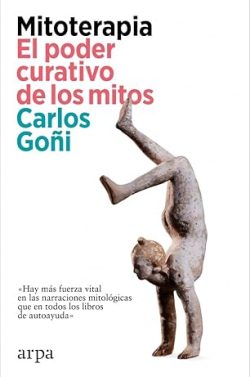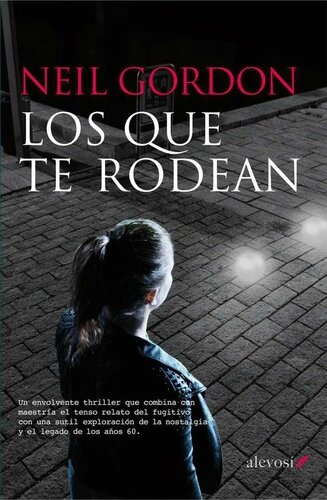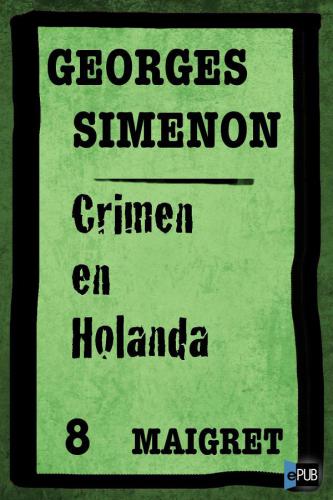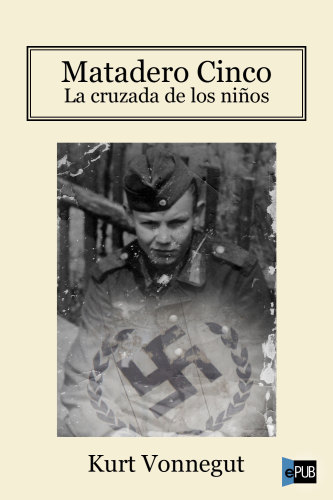oleebook.com
Carthage de Oates
de Oates - Género: Ficcion
Sinopsis
Oates Publisher: Penguin Random House Grupo Editorial España, Year: 2014 ISBN: 9788420418391
Descargar
Descargar Carthage ePub GratisLibros Recomendados - Relacionados
Comentarios de lectores del libro Carthage
Demasiado extenso, para la historia que cuenta. Son muchas páginas que no sabes que aportan a la historia sino mera literatura para lucimiento de la escritora, creo yo.
Autor del comentario: SANESTEBAN
=================================
Autor del comentario: SANESTEBAN
=================================
Nuevamente la autora nos trae un relato hipnótico, inquietante, con una galería de personajes únicos y descritos magistralmente, la historia, contada desde varios puntos de vista , todo esta muy bien logrado en este libro, yo creo uno de los mejores de la escritora, me recordó mucho Aves del Paraíso, en fin un libro que recomiendo de todas maneras.
Autor del comentario: LEONEL HUERTA
=================================
Autor del comentario: LEONEL HUERTA
=================================
Es el primer libro que leo de Oates y me dejó gratamente sorprendido. Posee un gran talento narrativo, crea personajes fuertes y una atmósfera que te sumerge en el sentir de ellos, se podría pensar que la historia no da para tantas páginas, pero la realidad es que disfrutas cada una.
Autor del comentario: NECAXMAN
=================================
Autor del comentario: NECAXMAN
=================================
Reseñas Varias sobre este libro
There are plenty of plot synopses available at this point, so I'm going to focus my review on just my thoughts about the book.
I really wanted to find another way to describe my feelings about Carthage other than "I hated it", but that is truly the most honest. I struggled to pick it up, read it, and get through it. The only reason I kept plugging away is that I was hoping to get a satisfying resolution to the story, but I felt it just petered out and I didn't even get that.
The reasons for my dis are:
1. The writing style itself. I am slightly embarrassed to admit that I've never before read a Joyce Carol Oates book, and maybe her writing style is consistent throughout her works so those already familiar with her, and that her, will not be bothered by it. For the uninitiated, though, the half-sentences, random italics and bold font, choppy paragraphs written as if badly composed poetry, and then sudden shifts to long, drawn-out chapters that feel as if they will never end are more jarring than captivating. I never felt that I could get into a rhythm while reading. I was also bothered that a chapter would be titled "The Father", cover 150 pages, and shift back and forth from the father's perspective to the mother's. The chapter is supposed to be about the father, correct?
2. I'm also a bit of a stickler for good editing, so I was taken out of the story by my annoyance with Oates' habit of finding a word she s and using it too often within a section (see: wraith, gut-sick, premonition, the habit of describing a man with variations of bear anatomy). It's as if she sat down to write, the word or phrase got stuck in her mind that day, and then she forgot about it during her next writing session, never to be heard from again.
3. The characters, especially Cressida, are wholly unable. I don't mind a good anti-hero or conflicted protagonist, but I honestly wanted to throw Cressida in the damn river myself. One can tell Oates fashioned Cressida (and for God's sake, it's not that difficult a name!!) after herself with her description of being small, child-, having huge dark eyes and dark, frizzy hair, so I think Oates s her more than any human being ever could. The fact that Cressida was so self-absorbed, so completely unable to comprehend the feelings of anyone other than herself, so downright cruel to her "friends" and her sister and her parents and mankind in general because she thought herself so special and so different made me not care one iota that she felt she was a victim. The fact that she would take the actions she did because (oh sniffle, oh tiny violin) people don't love her enough (in her own estimation) made me just hate her. All of this resulted in suffering through an entire book about her.
4. Oates repeats the same information over and over ad nauseum, especially during the first 250 pages or so. I desperately wanted the story to move forward, but I was subjected to reading the same. exact. information. for what felt an eternity before anything happened again in the story.
5. This seems a minor annoyance, but Oates kept describing the father as if he were some giant, hulking, massively obese man by saying he weighed 199 lbs. She spent much of the end of the book talking about his hands bear paws and describing his movements as if he were lumbering. Has she never met a normal-sized human male? I understand that she's incredibly small, but it was insulting to me - and I'm just a tall but normal-sized woman - to keep reading how this man was supposedly so gigantic that it's offensive.
Since I do want to say at least something positive because I generally love reading so much, I did find the character of Brett sympathetic, and I was interested in his story. Much of this book is about the atrocities of war and how those who return are affected, and in turn affect others, and I did feel Brett was crafted well to bring this to life. Oates' stream of conscious writing style actually worked well for Brett's character.
Overall, I was very disappointed in this book, and it's certainly turned me off to Oates as an author. Some people obviously love her and have nothing but high praise for this book, but she's just not my cup of tea.75 s Eric Anderson698 3,528
Reading a long epic novel by Oates is a wholly immersive experience. I became fully lost in this book, grew to love the uniquely individual characters and spent a lot of time contemplating the intellectual and emotional conundrums that the author presents. Its a dramatic, extraordinary story that explores large subjects the Iraq war, the American penitentiary system, alcoholism and spousal abuse. Yet, the main thrust of the tale is a deeply personal story of a family thats been splintered apart and slowly draws itself back together to form anew. In the fictional town of Carthage, a small community in upstate New York, a young college-aged woman named Cressida goes missing. Her respected ex-mayor father Zeno desperately tries to find her. A war-veteran named Brett who is the fiancé of Cressidas sister is suspected of being involved. the drawings of M.C. Escher (whose art Cressida has an intense passion for) the laws of logic/gravity are suspended as the family desperately tries to find out what happened to their youngest daughter and are forced to go around in endless circles while the search is conducted. Time becomes distorted for them time passed with dazzling swiftness even as, perversely, time passed with excruciating slowness. This description so perfectly encapsulates the feeling of life in a time of crisis. The truth of Cressidas fate is surprising and heartbreaking. Over the course of the artfully composed narrative we learn what happens to her and the other compelling characters involved.
Read my full review of Carthage by Joyce Carol Oates on LonesomeReader32 s Diane S ?4,844 14.3k
3.5 Had a hard time with this one, there were many parts I d but at the same time I felt this was to wordy. Using stream of consciousness in some places, and a narrative voice in others, this novel is told in many different voices. The father, both daughters, the mother and the war veteran suffering from PTSD. When their 19 yr. old daughter goes missing, the last person seen with her is the vet. Her older sister's ex- fiance, he has come back terrifically wounded from the war, both mentally and psychically. As these characters tell their stories, one realizes how differently family members see each other, and more and more is revealed. Stream of consciousness works very well with the Veteran, one can truly see into his mind, his confusion, his pain and his terror.
Oates is a very prolific writer but her books are not easy to read, there is always so much going on under the surface. I was intrigued enough to keep reading, wanted to see where this book was going, and I did how it ended. I still do not understand the missing daughters motivation, think she was confused and I know she felt she was misunderstood by everyone. Despite the fact that I found this wordy, it did make me think about how little we actually know of the people we live with . How many things we do can be misconstrued. So in this way the book was a success. I have had a love-hate relationship with this author's books for many years, but I have to give her credit because she writes a wide variety of novels, many different subjects. I look forward to seeing what she tackles next.
28 s christa745 346
This is the truth as I imagine it: Joyce Carol Oates, so full of words that they tumble out of her and so she has to just put them places. Into novels, thats the obvious answer. When theyre coming too quickly to sort, poems. Tweets, thats healthy, too. Then there are the looped letters in the foggy mirror and etchings with her thumb nail into the soft wood of park benches.
Shes a different kind of persons Stephen King. Or maybe shes the same persons kind of Stephen King, but in a different way. Either way. Shes prolific. A book a year and not ever skimping on pages. Sometimes its , Wow, JCO. Out of the park again. And sometimes, with her latest novel Carthage, its , Hey, JCO. Why dont we all just calm down for a sec. Take a deep breath. See this person here? Shes an editor. No. EDitor. Can you guess what her job entails? No, no. Of course not. How would you know. Haha.
Carthage starts with a hunt for the body of Cressida Mayfield, the smart -- as opposed to pretty -- Mayfield girl. She was last seen leaving a biker bar with her sister Juliets former fiance, Brett, a guy who lost much of himself while serving in Iraq. None of this is in Cressidas nature, not the bar and not the not coming home. Brett is found passed out in his truck and a bit bloodied. Hes got recollections of what happened, but they are tangled up with recollections of something that happened while he was in Iraq. So when he confesses, hes confessing to something that makes about as much sense as untangling iPhone factory-brand earbuds that have been in a bag for a year. But the body isnt in the shallow grave hes spilling about. In fact, no one ever finds a body.
The plot of public opinion writes itself: the broken war hero returns home to his fiance and gets the heave-ho when the carpool to physical therapy gets to be too much. Distraught war hero ends up murdering pretty fiances maybe autistic sister. Its especially easy to believe after his confession. And, before the breakup, Juliet experienced a violent episode at the hands of Brett, so shes not necessarily positive it didnt happen just the way he said.
The latter half of the book finds the characters scattered, both geographically and mentally. The tragedy has altered everyones trajectory. Theyve found God, booze, quiet anonymity, comfort and a friend.
Oates gives each character a shitton of space to sort through emotions, identity and contribution to this messy tragedy. Its too much space. The characters dont feel developed as much as they just feel they are being put through paces so that the writer can discover tics and quirks.
Its too much, friends. It is just too too much. Carthage is a lot of words to say very little. It reads a first draft, the version where you start digging at the characters skin to see who youve got to work with here. 36 s Barbara1,497 5,138
Cressida Mayfield, a troubled, immature 19-year-old college student, goes missing from the small city of Carthage, New York.
Brett Kincaid, a badly injured, decorated Iraq war veteran who was previously engaged to Cressida's sister Juliet, is suspected of being involved in the disappearance.
Cressida's parents, Zeno and Arlette, are shattered by the tragedy as is Brett's embittered, neurotic mother, who accuses all and sundry of wronging her "war hero" son. We find out about the lives of these characters, what happened to Cressida, and the devastating consequences of her disappearance.
Can't say too much more without giving away spoilers so I'll just say the story points out how much we may not know about people close to us. Good book, worth reading.
You can follow my at https://bybarbsaffer.blogspot....21 s S.A.Author 44 books91
At one point, I feared I might end up disliking this book as much as I disd "The Accursed." The point came mid-story via a switch from upstate New York to Florida, a displacement so jarring I suffered mental whiplash.
Once I understood the reason, I overcame my emotional emergency and settled back into the novel as much as one settles into a JCO novel. She is not a settling-in writer, not by a long shot. Oates is about as settling as sitting on a porcupine while scorpions dance around your bare feet.
In this novel, at first Oates seems to hate the Mayfield family, her main players in this novel. She peels open their skin, inviting the reader to start spraying acid on them. Arlette, the mother, is basically a cipher married to a controlling man. Zeno, the father, is a well-intentioned do-gooder, the center of attention who secretly thinks the world of himself. He would never see himself as controlling or unkind. Juliet, the oldest daughter, is the pretty one, the good one, the devout onethe shallow one. Or is she?
Brett Kincaid, Juliets ex-fiancée, a drastically wounded war vet, seems to be the only character who generates any sympathy.
Then theres the youngest Mayfield daughter, the novels center: Cressida, the smart one, the nonconformist, the critical, prickly one, the daughter who feels unloved and unwanted.
Self-destructive Cressida is her own worst enemy. Her unwantedness, unlovesness, leads to a tragic decision which unravels her family. Her awful decision sends Brett Kincaid to prison for murder.
As the novel moves along, Oates shifts the readers emotions with amazing skill. By the end, the reader huddles in a corner, ready to forgive everyone, even Cressida, although quite a few times this reader wanted to smother Cressida.
Carthage is a powerful novel, one best read in large sweeps for the full sensation of unsettledness. Beware the dancing scorpions.
20 s Maria Bikaki832 443
??? ?????? ????????? ?????? ??????????? ?? ?????????? ??????????? ?? ?? ??????????? ???? ?????????? ??? ????????? ?? ?? ????????? ?? ????????? ?? ????????? ??? ????????? ???????? ??? ??? ????????? ????? ??? ?????. ?? ?????? ????????? ?? ???? ???? ?? ?? ????? ?? ??????????? ???? ????????? ??? ????? ????????? ?????? ??? ?????????? ??? ??????????. ??? ??????? ????? ??????????? ?? ??????? ??? ?????????? ??? ??? ????? ? ?????? ??? ???? ????? ??? ????? ?????????? ???? ??? ?????? ???? ?????????. ????????, ????????, ??????????? ?????????? ?? ??? ?? ???????? ??? ???????. ?????????? ???????????? ? ???? ??? ????? ?? ??? ?????? ?? ?? ??? ?? ??? ?????? ?? ??????? ????? ? «??????» ???? ??????? ?? ?????? ?? ?????? ???? ????????? ????? ??? ????????????. ????? ???? ?????? ? ????? ??? ???? ?????????? ??????? ???? ???????? ??? ?? ??????? ??????????????? ??? ?? ?????? ???? ??? ?? ???????????? ??? ??? ?????????????? ?? ?? ????? ?????. ???????? ?????????? ??? ?????? ??? ???, ?? ?????? ??? ?????????? ??. mystery-crime read_in_201815 s M829 160
What an odd novel.
For one thing, the characters sounded educated cavemen. I know that sounds oxymoronic, but I don't know how else to capture the stilted, self conscious, unnatural yet often high falutin prose. For another, the most interesting part of the story was not at all handled, and the rest of it was an incredible boring build up to it.
Carthage is about a rather unlikable and strange young woman who goes missing and how the family falls apart. This one had a bit of a twist but the execution was really poor, and I could not tell you at all what the point of this story is. JCO is one of those authors I keep thinking I am supposed to , and every time I find her almost breathless prose to be pretentious and cloying.13 s Shannon911 261
This heartbreaking tale focuses upon a dysfunctional community which morally tears itself apart after a murder takes place. The death of a younger daughter for the Mayfield Family leads to emotional scars that cannot be healed.
The highlights of this novel are the wonderful yet poignant thoughts of many characters impacted by the murder. It helps to understand PTSD or the actions of one of the main characters won't make sense.
Any tale that can bring tears to a generally emotionally controlled person such as myself picks up a good grade.
The audio for this novel was done by a man and a woman. A really nice touch. Voices by Susan Ericksen (who is great with emotional frequencies) and David Colacci.
OVERALL GRADE: B plus to A minus.
audio-book books-reviewed life-stories ...more12 s Anna238 86
Strangely I have a tendency to first want to read the books that are not acclaimed - the lesser children of otherwise known and appreciated authors So Carthage was my first book by Joyce Carol Oates and to be honest I didnt expect much. The lukewarm average review, a thriller but on sale, so in a way, faith has decided :-). All that has changed completely, when the characters began to take over the story .
A psychological damage can came about in so many ways. Sometimes it is violence or war that can not leave anyone unaffected or undamaged, but sometimes, it is only words. Sometimes, when the individual is vulnerable enough and the person uttering those words trusted or admired - just about anything can get engraved forever.
We can only watch when Zeno who s parental position grants him more power and influence that he might wish for, unintentionally sets the scene for his daughter's future. Such innocent words and yet, you think, maybe, he should have known better ? Admiring the old dog Rob Roy, that suffered and died in silence away from his family;
quoting the ancient greeks, whose teaching was It is better never to have been born.
calling his daughter, the smart one . as opposed to the pretty one
Unavoidable instances - when something of grave consequence gets said and changes things forever
Carthage is so much more than you would expect.... It is so much more, and it is all about the characters. The carefully designed chess-game of psychological cause and effect, so human and so unpredictable.
Unhesitant five stars from me, for the mastery in construction and for the deep knowledge of human condition.2017 a-american ed-paper ...more12 s Leo4,552 485
I think this is my least favorite book by Joyce Carol Oates at the moment. Maybe the second but it just didn't work for me. Didn't find it engaging at all and didn't find the story to be interesting enough to read a pretty big book about12 s Jo Dervan769 25
This book, reminiscent of We Were the Mulvaneys, is about how a single incident wrecks the lives of a whole family. This book is set in upstate NY, the scene o other books by this author. The affluent Mayfield family has two daughters, Juliet and Cressida. Juliet, older and the prettier of the two, is engaged to her boyfriend, Brett, who is serving the army in Iraq. However he returns home severely wounded in both body and mind.
Juliet accepts his condition and is willing to help him through his rehabilitation. However the engagement is broken and son thereafter, Cressida disappears after being driven home from a bar by Brett. He is found blacked out at the wheel of his Jeep in a wooded area and Cressida is nowhere to be found.
Each section of the book is told from the point of view of all the family members as well as Matt and his embittered mother and all lead to a startling conclusion.
This is a riveting story that will keep you reading right to the conclusion.11 s Chaitra3,804
This will teach me to pick up a Joyce Carol Oates book, expecting to it. I don't actually her style - too cloying by half. She writes about victims (in their minds they are, at least), and she writes it in stream of conscience style. This lack of plot and half-hearted prose probably explains her high output. But, it resembles nothing so much as verbal diarrhea.
I really HATED the main characters - all of them seem to have one personality trait (or flaw), and they never deviate despite the trauma they seem to have suffered. There's no growth, there's too little depth. The main character, the missing girl - or the girl who was (or they say was) missing (this bears repeating apparently, too many times, to increase word count) - is the "smart" one of the family, but really, all she is, is ugly. Inside out. She's a hopeless character to write 490 pages of garbled text on - I couldn't muster an ounce of sympathy. The worst part is that we see her six years after the main trauma, and she is *still* harping about the same bullshit that she was at 10 years old. There's nothing about her to , she's too self obsessed and vain for that.
The other main person in the equation is a troubled Iraq war veteran. He is at least marginally more interesting than Cressida, in theory, given all the things he may have (probably) been through in the war and the PTSD that ensues, but his character is given some vague bull to deal with. Compared to Roxana Robinson's Sparta, which is the last book I read about PTSD resulting from Iraq, this is laughable. In any case, there isn't much time for Brett, for either of Cressida's parents or for her sister to air their thoughts, because we need to spend time exclusively in Cressida's shallow brain. Oh, I hate SoC so much. It's rarely done well, and in Oates' case it's an excuse to repetitively circle the same thought, sometimes not even in different words.
I don't think I can stand Oates' writing. Too bad her name starts with an O, and she writes two books a year - I end up choosing her books for reading challenges and regretting it. This might be the last straw though. I don't think I have the patience to sit through yet another self indulgent character whine about the bad things that happened to them for 400+ pages. 1 star.
Edit: Also, what's so freaking hard to remember about Cressida? For heaven's sake! At least choose something sufficiently weird, not something from the title of a Shakespeare play. contemporary-fiction crime-fiction literary-fiction ...more10 s Roman Clodia2,614 3,530
This is a searing and devastating novel of guilt and redemption, themes often treated in fiction but not always with the cool, perceptive eye of an Oates.
The writing takes us into the heads of characters and gives an emotional intimacy that is as disturbing as it is effective. A brilliant book.8 s Peter1,158 40
Joyce Carol Oates is the Cormack McCarthy of the psyche. McCarthy uses his inside voice to explore the existential bleakness of the human condition; Oates uses her outside voice to explore the mind filled with angst, anger, and pain.
It is 2005 and nineteen-year old Cressida Mayfield is missing in a state park near Carthage, NY. In the very beginning, Cressida speaks to us from her lostness. Her older sisters fiancé is somehow implicated, but his body and mind have been so scarred in Iraq that even he doesnt know. Is Cressida alive or dead? Is her voice real or someones imagination? Will Oates tell us? Its worth finding out!
The first third of the book reports the thoughts and actions of Cressidas family as the days of her absence pass. The language is very Oatsian-snatches of thought and verbiage that leave nothing clear about what happened, why, or even when. Cressida is a smart and difficult teenager who is on the autism scale. Her parents, Zeno and Arlette Mayfield, loom large in this section: Zeno is focused solely on finding his daughter and/or the responsible party; Arlette is focused on keeping Zeno together. From the outside, the Mayfields are a solid and strong family; on the inside they-and particularly Cressida-are fragile and fearful.
The scene shifts suddenly to 2012. The Investigator is an elderly and mysterious academic specializing in social justice issues, very much Barry Schenk focuses on criminal justice. Although his work is widely known, he reveals nothing about himself, and his complete commitment to his projects requires him to hire an assistant (intern) to manage his life. Sabbath McSwain, his new assistant, is a student in her mid-20s, wholly committed to The Investigator and his work. A searing portion of this section involves their tour of a Florida prison, given by a sadistic corrections officer. Sabbath is almost literally shattered by the trauma of entering the execution chamber. But what does this have to do with the Mayfields?
Oates has written another compelling novel of pain and loss, crafted, as usual, in glorious prose. To Oates, characters are not flesh, they are thought-love, anger, self-hatred, and fear. This story is more focused on the enigma that is us than her last novel, The Accursed, but it is as enthralling. An easy five stars!
P.S. Joyce Carol Otes IS Cressida Mayfield!
fiction-literary8 s Mari Carmen490 79
Ha sido una lectura pausada, una lectura que requiere tiempo y paciencia, pero ha merecido la pena y mucho. Me ha encantado la prosa, las distintas perspectivas, los pensamientos de cada uno de l@s personajes, sus sentimientos ocultos y los que muestran al mundo. Lo que puede desencadenar un hecho concreto, un malentendido, el tiempo,la distancia.
Muy recomendable. 8 s MaliaAuthor 7 books621
I don't really know where to start describing this book, but here goes. CARTHAGE is an ambitious novel, in terms of subject matter and even language. For me, I am sad to say, it is not successful on either account.
What really disappointed me was the cool distance from emotional connection ever present in the book. The subjects presented - PTSD, trauma, loss, grief, etc. - are ones that should evoke deep feeling and involvement, yet the style of writing, the blandness of the characters (speaking often in chlichees or presented in an unpleasant stream-of-consciousness style) and the general drabness of the setting really hindered me in becoming at all invested in the book. And a real peeve of mine was the incessant use of 'for' when it should have, in modern day dialogue been 'because' or 'wakened' when 'woke' or 'awoke' would be more appropriate. I assume Oates was trying to be elegant, poetic even, but it seemed almost laughable at times and really got on my nerves after the words were repeated constantly. I feel petty even writing it, but frankly, had the book, the characters been interesting or engaging, I could easily forgive small flaws in logic or editing.
I know I should have been invested in the fate of Cressida, but I just found her truly unable, and even Brett with his PTSD seemed a bit of an ass even before he went off to war.
I can appreciate the ideas Oates attempts to bring across, to touch upon; however, I felt throughout, a lack of care or realism. The story, a long one, really drags on at many points, and I had to force myself to continue, having come too far to abandon it. There is a great deal of repetition, too, which added to the tedium.
Certain points are reasonably interesting, yet as I search my mind to find something that stood out to me as particularly good, I come up with nothing. I could not connect to any of the characters, because despite the highly emotional content of the story, they all felt flat, cold, almost caricatures of people in their situation, dulled down and made inaccessible.
Some time in the future I might realize Oates deeper intent in writing this book, yet at this point I am still slightly frustrated with myself for having wasted so much time on something I got so little pleasure from, when I could have been doing something more exciting . . . counting my hair or doing the laundry.
Obviously some people rave about this book, so it may very well be for you, however, I cannot say much more good about it than that it was a feat in itself to write so many pages. I don't to be unkind about any book, because there is a great deal of thought and effort that goes into the writing process, but I have to be honest, and the truth, for me at least, is that this book was a real disappointment and I very much doubt I will seek out others by the same author in the future.
Find more and bookish fun at http://www.princessandpen.comliterary-fiction7 s Xenja643 70
Poiché Cressida non replicava, il professor Eddinger continuò, ma in tono più concitato, seccato. Signorina Mayfield, è fuori questione che il suo sia un buon lavoro. Anzi, direi ottimo. Brillante. Il suo progetto mi ha davvero affascinato, anche se in un primo momento non volevo nemmeno esaminarlo, visto che era stato consegnato così in ritardo, e senza nemmeno una scusa, chessò, magari che aveva avuto dei problemi di salute. Eddinger tacque, come per dare a Cressida la possibilità di dire qualcosa - ma cosa? (Soffriva di diselessia? di autismo? di schizofrenia, disordine bipolare, paranoia? di idiozia?)
La Oates, secondo me, è sottovalutata. Viene considerata una scrittrice piuttosto commerciale, quasi una sforna-bestseller, in confronto a colleghe di fama letteraria più prestigiosa come Alice Munro, Elizabeth Strout o Marilynne Robinson. La colpa è sua: è esageratamente prolifica. Ma è un equivoco. I suoi romanzi sono quasi sempre bellissimi, scritti con grande profondità e sottigliezza psicologica, solidamente costruiti, e tutt'altro che commerciali.
Cressida, la studentessa scomparsa, è un personaggio bellissimo. Non è una ragazza normale, e tuttavia non è nemmeno anormale. Tutti conosciamo persone così: magari molto intelligenti, spesso piene di talento, eppure incapaci di vivere in mezzo agli altri, di adattarsi a usi e costumi della società, di fare amicizie, di avere relazioni con l'altro sesso, di affrontare esami, colloqui di lavoro, viaggi, dichiarazioni dei redditi. Finiscono, di solito dopo una giovinezza promettente e problematica al tempo stesso, per restare impantanati in casa dei genitori per tutta la vita. Ma qual è la diagnosi? Io non me ne intendo, ma credo che non esista nessuna diagnosi e soprattutto nessuna cura. Non hanno malattie mentali, né disturbi psicologici come gli asperger o i borderline. Forse sono semplicemente molto, molto sensibili.
E cosa fare con queste persone? Come comportarsi, se si è loro genitori? a chi chiedere aiuto, consiglio? Il mondo fa finta di niente quando non sa che fare - in fondo ci sono problemi ben più gravi, disgrazie ben peggiori. Vero.
Ma la Oates sa che queste persone possono diventare problemi ben più gravi e disgrazie ben peggiori, per se stessi e per le loro famiglie. È il caso di Cressida Mayfield, tanto sensibile e tanto orgogliosa da non poter sopportare d'esser sbeffeggiata da un bambino, d'esser criticata da un professore, d'esser respinta da un ragazzo: tanto sproporzionata è la sua reazione a questi episodi da innescare una catena di sofferenze e tragedie che coinvolgerà più di una famiglia.
La Oates, altro che sforna-bestseller!, scrive dell'essenziale: del modo in cui le persone affrontano e sopportano la sofferenza e la felicità, la malattia, la violenza, la miseria, l'amore, la solitudine, la paura e la morte; e con quanta bravura, con quanta verità.7 s CarolynAuthor 10 books51
Carthage is not an easy novel, not a story you simply read from beginning to end. The story is gathered from fragments of thoughts and emotion, from brief glimpses into the lives of the Mayfield family and the life of a young veteran of the Iraq war. Oates explores the nature of forgiveness and redemption, the lies we tell to ourselves, and to each other, how we construct our lives and how we project the image of ourselves to our families, friends and community, and essentially how we live with the decisions we make. 7 s Sarah246 75
Carthage by Joyce Carol Oates is a long winded psychoanalysis of a young woman name Cressida, born into a middle class family who is pegged by those who know her the smart sister in comparison to the "prettier" one. She grows an attachment to her sister's fiance, a war veteran, and changes the course of multiple lives, pretty much looking for her own. The first part of this book was amazing, but when the plot reveals itself, I think for type of novel it then becomes, it misses the mark to have made it a wonderful 5 stars. I applaud the philosophical sentiments throughout the novel, as you don't see much of that when reading, but it wasn't convincing of me to either love or hate the protagonist, or understand her, she kinda just bored me after awhile. The wishy washy style of writing in some chapters, I wasn't keen on. Maybe more geographical setting as the title suggests would have helped (such a lovely cover). Or more emphasis on the pretty sister, and what made her so pretty.
Overall a very ambitious novel to take on.This entire review has been hidden because of spoilers.Show full review5 s ?????67 14
??? ????? ?? ?? ??? ?? ??????????, ??? ??? ???? ???? ?? ??????? ? ???????, ????? ?? ??????? ???????? ??? ?? ?? ?? ?? ?????. ?????? ???? ???????? ?? ????? ??????????? "??????-??????????" , ?????? ??? ???????????.5 s Inés447 150
TEPT, relaciones familiares, violencia contra la mujer, enfermedades mentales, novela muy representativa de Joyce Carol Oates, tanto por los temas que trata ( recurrentes en su obra) como por su estilo muy personal. Un noir americano muy bueno.5 s Holly274 6
This is one of those books that I feel bad giving 3 stars to because it's well written and well thought out and relatively well characterized. It doesn't really seem right to rate it the same as many of the silly cozy mysteries that I read.
But, I can't really go higher.
It's the story of a family torn apart by the disappearance of the younger daughter, allegedly at the hands of the older daughter's fiancé, a wounded Iraq war veteran. I really can't go into much more about the storyline without spoiling.
What I found most interesting about the book was the author's look into the trauma of the characters' lives, particularly Brett Kincaid and what he experienced in Iraq and the effects, and the younger daughter Cressida, who lived her life misunderstood and unhappy.
Unfortunately, the book dragged on. It was too long for the story it had to tell and spent a lot of time delving into each of the character's lives. As I said, the characterization of each was quite well done. But, while many recent books have very effectively used the voices (1st person) to tell different characters' stories, here Oates chooses to use 3rd person, thereby using a similar style for each, which creates a distance from the characters. Then, annoyingly, in the last two chapters she decides to use 1st person, for different characters in each. Yet, the 1st person narration still sounds Oates in both cases, rather than two separate characters.
Finally, I wasn't thrilled by the outcome of the story. The mystery itself is basically resolved about half way through the book, so what remains is just how the consequences of what happened will be resolved with each of the characters. Yet, this bit is really rushed into the last 20 pages (of a 480 page book). (Well, this isn't entirely true, since the whole last section is more or less about these consequences on the various family members, but if you've read the book, you know what I'm specifically referring to.)
I really wanted to this book, but it was a tough one for me to get through.5 s Rallu S.17 8
?????? ??? ????. ????????? ???????? ??? ?? ?????? ??? ??? ?????. ?????????? ??????? ??? «??? ??? ??????» ??? ??? «??? ??? ?????? ???? ???? ???? ????? ?? ??? ??? ??? ?? ?????» ?????? ???? ??? ????????? ????? ??????? ??? ? ?????????? ?????? ???? ?? ???? ?????????? ????? ??? ???? ?? ?? ?????????, ?? ??? ? ???? ?????????? ???? ?????.
???? ??? ????? ??? ?????, ?? ?????? ???? ???????? ??????????? ?????? ??? ?? ????? ?????????? ?????? (?????????? ?? ??? ?????????? ??????? ??? ?? ????????? ??? ??????). ????? ??? ???? ???? ??????? ???? ??? ??????????? ????? ?????? ?????? (????????? ???? ???????? ?????????????? ??????? ???? ?????, ??? ?? ?????). ??? ?? ??? ????? ??????????, ????? ???? ??????? ???? ?????????? ??? ???????? ?? ?????? ??? ??? ???????? ?????????, ?? ????? ?????? ??? ???????? ?? ????????? ???????????? ????? ??????? ??? ? ?????????? ??? ????????????? ?? ?? «???????», ?? ?????? ??? ?? ????? ????? ?? ??? ?????????? ???. ?? ????? ???? ???? ????? ? ?????????? ??????????????? ?? ???????? ??? ??????? ? ????????? ?????????? ??? ?????????????? ?????? ??????, ??? ??????? ???? ??? ????? ???? ??? ???? ???? ?????????????? ??? ??????? ???? ???? ?????????????? (??????? ??? ??? ??? ??????????? ??? ???????????), ???? ??? ?? ????????? ???????? ????? ?????? ??? ????? ????? ??????? ??' ?????? ???? ?????????. ????????????? ?????? ???? ???? ????????? ??? ?????? ?? ?????? ?? ????????? ???? ????? ??? ?????????. ???? ????? ??? ????? ??? ?? ??????? ???? ??? ??????????? ?? ????????? ???????? ?? ?????????? ??????? ??????? ??????????? ??? ??? ??? ???? ?? ????? ???????? ??? ????? ??? ??? ????????? ??????? ??? ???? ??????????. ????? ??? ?? ?? ??? ??? ?? ????? ??? ??????? ????, ?????? ??? ???? ?? ?????? ??? ?????????? ????? ????????? ??? ??????? ??????????? ??? ??? ?????? ???, ?????? ??????? ????????????? ??? ?? ????????, ??? ?????? ?????? ?? ??????? ? ???????, ??? ????? ?????? ???????? ???.
??? ?? ??? ???? ?????, ??? ????? ? ???????? ??? ???????? ??? ???????, ???????? ?? ?? ?????????? ??? ??????? ??? ??? ??????? ??????????? ???????? ???? ????.
?????! ?? ?? ???? 2 ????????? ??????.5 s Dawnie1,338 130
Somewhere between 3 and 4 stars.
Lets start with the positive:
I loved how deeply this book got into exploring what faith means, both in the religious sense and in the way in what other people believe someone can be capable of. This book is one of the best books i have read so far from any book i ever read in how realistically and honest it discusses faith from all angles.
This is not a religious book, but it discusses religion, it shares both a person that is very faithful religious, that believes and is sure of God, and it discusses the other sides shown from people that are either completely not religious, not believing that there is a God and also someone that is not sure what to believe, that wants to believe but bad things keep happening that make it really hard for her to believe and so it shows those ups and downs of this persons faith and believe in religion... and i LOVED that about this book!
It was wonderfully done.
I also really d how honest and real it seemed to me in how the "suspect" the war veteran was treated.
Because some people just believed right away that he did something horrible to the missing girl/woman (she's 19, does that count as girl or woman?) and others that are sure that he -a decorated veteran!- could have never done anything but be helpful towards another person.
And while some parts of this particular topic in this book are very word-y and overly long and a bit wide reaching in my option, overall Oates did a fantastic job with this as well.
Because she really shown the difficulties both from the side of a veteran coming home and trying to fit in again, dealing with the issues of having been in an active war zone and at the same time she also shows the other side of people that have been home, waiting for the solider to come back only to not get the person back they expected and having no idea how to deal with that.
I appreciated how Oates tried to find this balance between being completely honest and real and at the same time still clearly writing fiction. And while sometimes words did get a way from her at this point of the book, i do really think that overall she did a fantastic job in describing the difficulties soldiers face coming home and having to deal with a difficult situation a missing persons case and being the main suspect for that.
I also mostly enjoyed the writing, i already said twice that it became bit overly word-y in the middle section of this book and could have moved a bit faster because of that, but overall i loved how Oates writes.
She finds a beautiful balance between realistic fiction and honest discussion of difficult topics i rarely if ever see in books.
And now the things that i found a bit strange.
At a point in the middle of the book Brett (the war veteran) takes over the narrative for a bit and honestly that confused me bit in the way it was written and i would have preferred the story to continue in the writing style as the first part of the book up until that point had been. Not because i didn't think that Brett would have been an interesting narration to get, but i didn't how Oates wrote his parts.
They were confusing and while i do see the sense in that since Brett clearly was confused and unsure about what was happening and what he was doing, i personally don't this type of unconnected and confusing writing. I appreciate it way more if i just get a clear picture painted of what the author wants for me to know, even if it is just that it is to tell me that the character has no clue what happened. Just tell me that. Don't write twenty pages basically -maybe- telling me that.
I also didn't really the ending?
But honestly i am not sure on that part.
i have to re-read the book in the future and maybe than i can tell you what i actually thought of it.
For now i just honestly didn't that that was the ending we got.
I understand why she did it.
It is a book discussing the different aspects of people coming home from difficult situations. So it fits? But at the same time i didn't that she took the story there and i would have enjoyed a different ending more i think.
One where Cressida is not alive, or not run away and than decides to come back but maybe rather having Brett be released for some reason and coming back home?
I did understand -somewhat- why Oates didn't kill Cressida off, but i didn't that she let Brett rot away for something he clearly didn't do. Clearly that is very realistic and how it actually happens. But still that was just... odd? For me to read and i didn't really know what to do with it.
But as i said, i have to re-read the book to be sure. i did Read those last 200 pages really fast because i wanted to know what happened. So maybe i overread something important that makes it all clear?
For now and this first read through of this book, i have to say i love Oates' writing, i really love her honest view and talk about difficult topics and her very real world view. I appreciate that she shows different view points of the same topic, because how often do we get that in books? I appreciate an author that doesn't shy away from difficult topics or makes them fit into a more "happily ever after" world but keeps it realistic and how it is, even if that is not what the reader wants to see happen with the characters (myself included!).
I will defiantly pick up something else by this author, and i KNOW i will re-read this book in the future.
Not this year. I need a bit of distance from this plot, this story, this book, but in the foreseeable future.
library-book4 s Kike261 52
Cómo siempre Oates nos entrega un libro excelentemente escrito, donde se ve el dominio de su oficio. Y como siempre utiliza un género específico para desentrañar los horrores de la sociedad norteamericana, en el caso de Carthage utiliza la novela de misterio para hablar de los horrores de las guerras estadounidenses y de su pésimo sistema carcelario. Un libro pesimista y asfixiante que no llega a los niveles de Blonde, pero nos demuestra que Joyce Carol Oates sigue siendo de las mejores escritoras estadounidenses.mystery-thriller4 s Matt Escott59
Having never read any Joyce Carol Oates I wasn't sure what to expect. To say that I was massively disappointed is an understatement. I found myself, at numerous times, checking the back cover to once again affirm that this was the same author who had won numerous prestigious writing awards, because the work that I was reading seemed far, far away from worthy of any sort of accolade.
The book is ostensibly about a missing girl and the impact that loss has on her family. But in this it covers a number of other themes: the impact of war, the question of fate, the power of perception, and questions regarding the formation of the self. Unfortunately, I didn't find Oates treatment of any of these themes (with perhaps the exception of war) to be compelling or meaningful.
There are a number of reasons for this. One is the writing style, which I realize is a personal preference. I personally do not prefer her style. The random italics, the wooden phrases, the choppy dialogue (both external and internal) were frustrating to get through.
This book is exhaustingly repetitive. I would think we have all come across people who ruminate on a specific topic or event and only speak about that until in desperation we turn the conversation in a radically different direction, only to have that person somehow bring the conversation back to the initial topic. Reading this book is that. I lost track of how many times characters said the same thing (whether out loud or, most of the time, internally) over and over and over again. It quickly turned the book from something to be enjoyed to something to be endured.
The combination of these exhaustively repetitive internal monologues with the utter lack of self awareness the characters show is also grating. How the characters can think so much about what they are experiencing, and yet be so self unaware, is maddening. One of the big "reveals" is that Cressida, the missing girl, realizes she never felt loved at home. And yet practically all of her thoughts and actions are about that very fact: how she doesn't fit in, how she is different, how jealous she is of her sister, the "pretty one." It was a frustrating experience to work through the book, watching Cressida reflect on this very fact, only to have her realize at the end something she has known all along, and have the story hinge upon that discovery. I wanted to throw the book across the room. And this is true, to a lesser degree, of all of the characters: the "growth" they show is entirely predictable and is a revelation only to the characters themselves. Anyone paying any sort of attention can see it coming a mile away.
It's also difficult to read a whole novel about a character you despise. I have read where the reviewer sympathised with Cressida, but I couldn't: she is selfish, cruel, whiny, and vindictive. It was trying to care about a bratty teenager whom biology was not forcing you to care about. Her big change at the end comes far too late and is never really developed by Oates: she just comes back different (as they all are), and...that's it.
Which brings me to my final point (for this review anyway, I could go on). For me, the most interesting question the novel poses is how a family can be brought back together after such an event; if there are things that cannot be undone. And yet we only really get one person's perspective (Juliet, who shows a completely understandable disdain and hatred for Cressida), and glimmers of the other family member's acceptance and forgiveness of Cressida. It rings false, terribly false: the wreckage she has caused deserves a more profound treatment than simply leading us to believe that all (most) is forgiven. This entire review has been hidden because of spoilers.Show full reviewfiction4 s Viola181 41
I had never read Joyce Carol Oates before Carthage, but if this novel is representative of her work, then I am sold! She completely drew me into the middle of small town America and made me absolutely love it. The characters were captivating, deep, nuanced, and above all, incredibly realistic. The story narrative weaved back and forth creating enough suspense to keep the pages turning even when there was not much plot.
The novel starts with the mysterious disappearance of nineteen year old Cressida Mayfield. The incident rocks the Mayfield family Zeno Mayfield, Arlette Mayfield, and Juliet Mayfield. To make matters even more juicy, Cressida was last seen with Brett Kincaid, Juliets ex-fiance.
Using this dramatic situation as a launching pad, Joyce Carol Oates begins to explore. She explores each of the characters. How they dealt with the aftermath of the disappearance and how they coped with it. I especially loved the way she wrote Zeno Mayfield. Distraught by the disappearance of his younger daughter. Desperately holding onto faith of her survival. And all the while grasping for revenge.
As much as I enjoyed the chapters about Zeno Mayfield, I have to admit that they did not even compare to the chapter on Brett Kincaid the one entitled, The Corporal in the Land of the Dead. That was pure brilliance. It begins referencing a her, a she, and you immediately wonder, who is the narrator referring to? And thats exactly the point. And it continues throughout the chapter. The gaps fill in just enough for the reader to know what is going on, but still confusing enough for the reader to get the point. I am in awe of such skill.
Still, for all my praises, I thought that the novel fell short in the middle. I much preferred the beginning and end. Much preferred the story surrounding Cressida Mayfield to the story of Cressida Mayfield.
Overall, I loved this book, and cant quite understand why it has such a low average rating on GoodReads (3.3 at the time of my reading).
4 s Ann587 31
In her 40th novel, Oates once again depicts the tragic sundering of families. The damage is not gradual, but the result of misbegotten choices/perceptions.
The focus of "Carthage" is Cressida Mayfield, the 'smart' younger sister - who feels unloved, unwanted, in spite of the obvious care bestowed upon her - of the 'pretty' Juliet. Juliet is betrothed to Brett Kincaid, who returns from the Iraq war scarred in body and mind. The setting of Carthage, New York is real, but I found it interesting to learn that child sacrifice is believed to have been practiced in ancient Carthage, especially in times of war. Although the parents of these three 'children' do not escape suffering, the greatest punishments await Cressida, Juliet, and Brett. 4 s Come Musica1,750 482
Autor del comentario:
=================================
